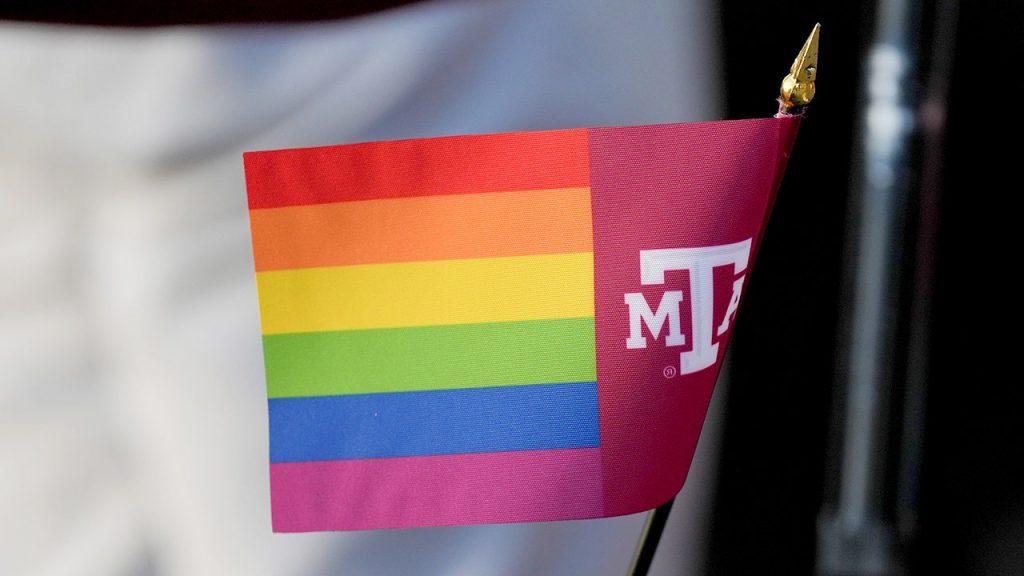In a significant legal ruling, U.S. District Judge Lee H. Rosenthal has issued a preliminary injunction allowing the drag show “Draggieland” to proceed at Texas A&M University despite a recent ban imposed by the university’s Board of Regents. The decision comes in response to a challenge from the university’s Queer Empowerment Council, which argued that the ban threatens students’ rights to expression and community gatherings. Scheduled for March 27, 2025, at the Rudder Theatre, the show is positioned as a celebration of queer culture and inclusivity on campus.
| Article Subheadings |
|---|
| 1) Overview of the Drag Show Controversy |
| 2) Background on the Drag Show Ban |
| 3) Court Ruling and Its Implications |
| 4) Community and Institutional Reactions |
| 5) The Broader Context of Drag Show Bans |
Overview of the Drag Show Controversy
The drag show “Draggieland,” organized by the Queer Empowerment Council at Texas A&M University, was scheduled for March 27, 2025. The event has garnered attention not only for its celebration of queer culture but also because it has become the focal point of a larger debate about censorship and freedom of expression on university campuses. The ruling by Judge Rosenthal emphasizes the importance of allowing such events to proceed as they are vital for promoting inclusivity and diversity within the university environment.
Background on the Drag Show Ban
The Board of Regents of the Texas A&M University System recently passed a resolution banning drag shows on university campuses, claiming that they contradict a federal executive order and a directive from the state’s governor aimed at restricting what they term “gender ideology.” The specific resolution states that drag shows may be viewed as promoting gender ideology, a point of contention that has raised significant debate regarding the definition of gender expression and the role of educational institutions in fostering a supportive environment for all students.
Court Ruling and Its Implications
Judge Rosenthal’s ruling allows “Draggieland” to proceed, asserting that the ban must be lifted during the ongoing legal battle. In his decision, he noted that the performance embodies the student body’s right to expression and assembly. The implications of this ruling extend beyond the immediate event; they challenge the authority of university boards to impose restrictions based on ideological beliefs, emphasizing that such actions must be scrutinized in light of existing legal precedents regarding free speech.
Community and Institutional Reactions
The reaction from the Texas A&M University community has been mixed. The Queer Empowerment Council expressed relief at the ruling, emphasizing the importance of maintaining celebrations of queer joy and unity. They reiterated that “Draggieland” has been an award-winning event that has fostered community spirit for years. However, the university’s administration has indicated that it is still evaluating the court’s decision and is preparing for potential next steps in what could become a protracted legal confrontation over the issue.
The Broader Context of Drag Show Bans
This situation at Texas A&M is part of a broader national trend where institutions across the country are encountering challenges related to drag performances and events celebrating LGBTQ+ culture. Various states have seen legislative efforts aimed at banning these shows, reflecting a divide in public opinion about gender expression and rights. As these conflicts unfold, questions about institutional governance, student rights, and the impact of political ideologies on educational policies remain relevant and critical.
| No. | Key Points |
|---|---|
| 1 | U.S. District Judge Lee H. Rosenthal blocks the drag show ban at Texas A&M University. |
| 2 | The event “Draggieland” is scheduled for March 27, 2025, and promotes queer culture. |
| 3 | The Board of Regents’ ban cites federal and state directives against “gender ideology.” |
| 4 | The ruling highlights the tension between student rights and administrative regulations. |
| 5 | The controversy reflects a national dialogue on drag shows and LGBTQ+ rights. |
Summary
This legal ruling is a noteworthy event in the ongoing discourse surrounding freedom of expression in educational institutions. Judge Rosenthal’s decision to allow the drag show “Draggieland” to go forward not only serves as a reaffirmation of students’ rights but also underscores the necessity for a thoughtful examination of institutional policies. As debates continue surrounding drag shows and LGBTQ+ representation, this case will likely influence future discussions and legislation in Texas and beyond.
Frequently Asked Questions
Question: What is “Draggieland”?
“Draggieland” is a student-run drag show event organized by the Queer Empowerment Council at Texas A&M University, celebrating queer identity and community spirit.
Question: Why did the Board of Regents ban drag shows?
The Board of Regents cited concerns over promoting “gender ideology,” referencing a federal executive order and a directive from the Texas governor.
Question: What are the consequences of the court’s ruling?
The ruling allows “Draggieland” to take place as scheduled, emphasizing student rights and the importance of free expression in university settings while potentially challenging the authority of the Board of Regents.


